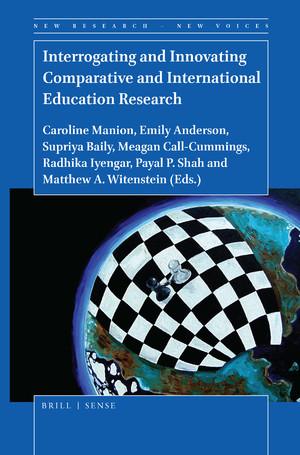
In 2017, I interviewed a selection of speakers who were slated to present at the CIES Fall Symposium. One of the speakers was Patricia Parker, who is a professor at UNC. Patrica recently wrote a book chapter that contains an excerpt of our conversation. The book is Interrogating and Innovating Comparative and International Education Research, which was edited by Caroline Manion, Emily Anderson, Supriya Baily, Meagan Call-Cummings, Radhika Iyengar, Payal P. Shah and Matthew A. Witenstein and published by Brill in December 2019. Here’s the abstract of Patricia’s chapter:
Participants at the Fall 2017 CIES Symposium engaged in provocative conversations about the ideas, problematics, and opportunities for creating academic and community spaces that challenge existing power-knowledge dynamics in research. This chapter summarizes my contributions to some of those conversations, drawn from prepared and extemporaneous remarks during the Plenary on Intersectionality and Research, as well as excerpts from a pre-symposium interview I did with Freshedx host, Will Brehm. Three key claims are developed in the chapter: (a) intersectionality is a necessary framework for enabling the creation and sustainability of decolonized spaces; (b) the university is a colonizing space that is simultaneously (and historically) a site for progressive transformation; and (c) decolonizing research involving academics and people in vulnerable communities that destabilizes and transforms knowledge hierarchies is possible, but requires commitments to decolonial participatory principles. The chapter concludes with a discussion of the Graduate Certificate in Participatory Research at the University of North Carolina at Chapel Hill as one example of what is possible in pursuing intersectionality in the co-creation of knowledge and decolonizing research as well as the academy itself.
